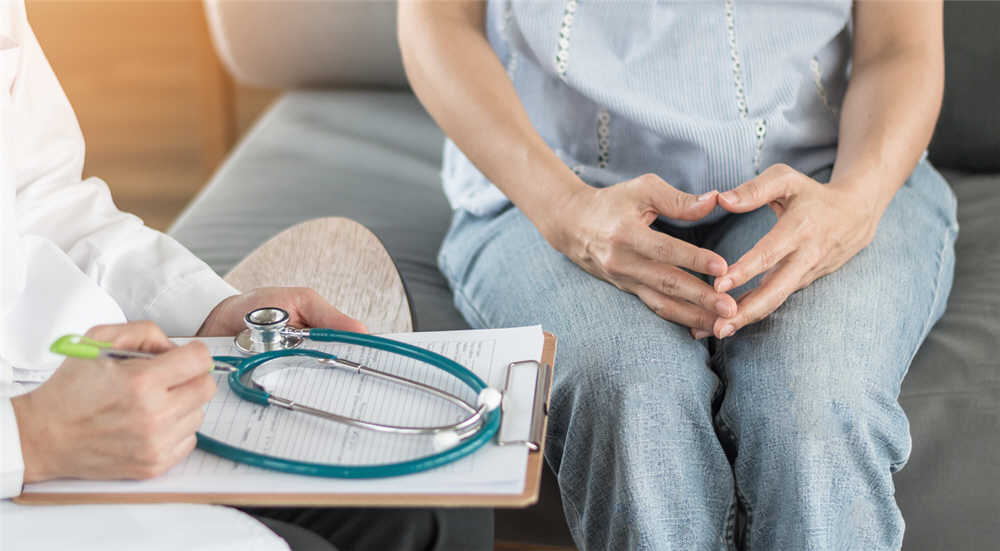
Have you been advised a breast biopsy following a routine annual screening mammogram? Relax! Don’t panic! Most women are extremely anxious when they are advised a breast biopsy. The good news is that nearly 4 out of 5 breast biopsies are benign. The purpose of performing screening mammograms is to detect breast cancer at the earliest. That means we can afford to accept benign biopsies rather than missing a breast cancer.
A breast biopsy essentially means that the doctor will sample a small piece of tissue from the suspicious area in the breast to assess whether it is benign (non-cancerous) or malignant (cancerous).
Unlike surgeries that require hospital admissions, more extensive anesthesia, skin sutures and prolonged recovery, image-guided biopsies are performed by radiologists on an outpatient basis under local anesthesia and usually takes less than half an hour. Abnormal areas, especially those that are seen only on imaging and not felt by the hand, can be sampled easily using different imaging modalities such as mammography, ultrasound or MRI.
Image-guided biopsies avoid unnecessary surgeries in benign lesions. At the same time, they also help identify the type of cancer and tumor markers which helps planning the treatment.
No special preparation is needed prior to an image-guided breast biopsy. You are not required to be fasting. If you are scheduling your biopsy, it is very important that you discuss all medications you are taking, with your doctor. Certain medications, most commonly Aspirin, Ibuprofen, anti-inflammatory drugs and specifically blood thinners such as Heparin and Coumadin can increase bleeding. Your doctor may ask you to stop these medications for a few days prior to your biopsy.
Prior to performing a biopsy, the radiologist will discuss the entire procedure with you and explain the risks and benefits. Once that is done, the skin overlying the area to be biopsied will be cleaned with a sterile solution. Then a local anesthetic medication will be injected in the breast with a tiny needle to make the area numb. After this, you will have no pain or discomfort during the biopsy. The biopsy needle will be then inserted under image guidance in the abnormal area and pieces of tissue will be sampled and sent to the pathology lab for analysis. You will be wide awake throughout the procedure.
In certain cases, following the biopsy, a tiny titanium marker clip is left behind at the biopsy site and a mammogram of the breast is performed after the clip placement to document the position of the clip. Although these clips are metallic, they are compatible with MRI (in case you need to undergo one at any time).
Once the procedure is completed, a simple dressing will be applied at the site of biopsy. The entire procedure usually takes less than half an hour.
Following the biopsy, you may feel some discomfort once the effects of anesthetic medication wears off. The radiologist will explain the after-care instructions in detail. It is recommended that you don’t do any heavy lifting on the side you had your biopsy for the next couple of days. You must contact your doctor if you develop severe pain and or redness at the site or fever after your biopsy. These could be signs of infection and are extremely rare as these tests are always performed using sterile and aseptic precautions.
After the biopsy, the sampled tissue is sent for processing to a pathology laboratory. The histopathology reports are typically available within a week. Once you receive your reports, it is important that you visit your doctor to discuss the report and what you need to do next.
Having a biopsy recommendation after your mammogram can result in a lot of anxiety. Discuss your queries with your radiologist. Once you are assured of how painless and quick the procedure is, undergoing a biopsy is lot easier. Waiting for your pathology reports can be unnerving. Try to distract yourself by doing what you like, whether it is watching your favorite movie or spending time with loved ones. At Mammocare, we understand your concerns and will be there to answer all your queries. We do everything to ensure you are comfortable during your biopsy. Mammocare is unique, in that we have an all-female staff and all image-guided breast biopsies are performed by a Fellowship-certified breast radiologist with extensive experience in performing such interventions.


